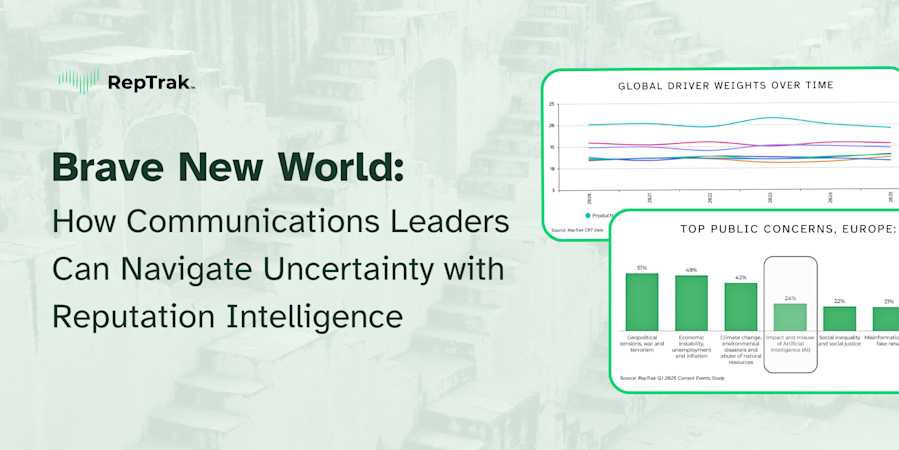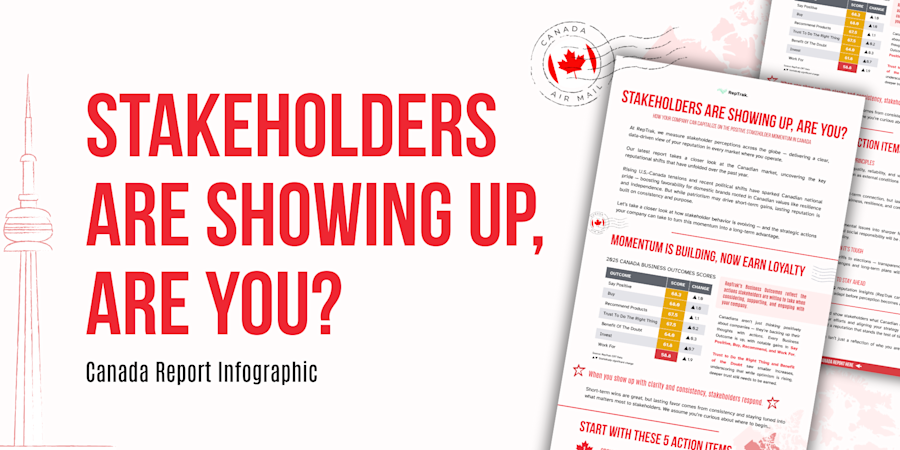Build a Reputation as a Great Place to Work—Without an Actual Workplace
Blog Post14 Jul, 2020
Never before has maintaining a safe and supportive environment for employees been such a critical factor in ensuring a company’s reputation. Since the early days of the COVID-19 (coronavirus) crisis, our global data has indicated that the importance of the Drivers of reputation are changing, with Workplace—including the health and well-being of employees—now significantly more influential.
But while the pandemic has boosted the importance of having a great workplace, at the same time it has upended expectations for what makes a great workplace. Companies that spent years building a reputation as great places to work suddenly found their gorgeous, Instagram-friendly offices shuttered, and their generous perks, like bottomless snacks and onsite gyms, completely inaccessible.
What’s more, new health risks mean that many common office trends themselves—like condensing more people into smaller spaces, open office plans, and desk-share programs (also known as “hot desking” or “hoteling”)—will need to give way to well-spaced desks, ample employee wash stations, and frequent, enhanced cleanings.
Between the financial cost and liability concerns, it’s no wonder that many companies may simply opt to close their physical offices entirely, if they haven’t already. But even smart work—in which all employees work remotely, whether at home or in coworking spaces—poses its own unique challenges, as employers have discovered during the pandemic.
With one in three Americans now working remotely, and millions more doing so globally, how can companies communicate that they are great places to work, even when they have no actual workplace to speak of?
A great place to work ... virtually?
During the early days of the crisis, our data showed that prioritizing employee well-being was a top concern of consumers—one that had a significant effect on Reputation Score. For example, in Italy, providing employees with face masks and other tangible resources was associated with a 5.2-point increase in Reputation Score, while providing updates on the evolving situation increased benefit of the doubt towards companies by 5.5 points.
The peak of the crisis may be over in some parts of the world (for now, anyway), and people have settled into their changed lifestyle, so the urgency and need for constant updates has subsided. But the feeling of being detached from a company culture has not. And in fact, an increasing number of workers report feeling less connected to their company now that they’re working from home full-time.
It will still be some time until teams can gather in a conference room, at a coworking space, or around a large table at a restaurant, and online novelties like imisstheoffice.eu only go so far, so keeping employees connected is a constant challenge—especially when so many are experiencing “Zoom fatigue.” In other words, finding different ways to maintain internal communications is even more important now than ever.
Hosting regular virtual “town hall” meetings is a good way to help keep employees aligned with your company’s strategic mission. Likewise, sharing prerecorded videos from your CEO or other team members provides opportunities for leadership to share key messages in a less formal, more authentic way that says “we’re all in this together.” Creating an intranet where employees can share their own stories can lead to new connections and possibly even some unexpected collaboration opportunities.
Empathy begins at home
For every employee who loves working from home, there’s another who is miserable and has difficulty focusing in the new environment. It’s not always obvious which employees fit into which of those groups, so reach out to your workers to see how they’re doing—via formal surveys and less formal check-ins—and help them adapt accordingly.
Remember that work has moved (uninvited) into your colleagues’ personal space, where they previously could retreat to escape from their jobs. Don’t be surprised or upset when children and pets wander into video meetings. When it happens, don’t groan—laugh.
More importantly, respect your colleagues’ time and boundaries. Some companies have begun using software to monitor what employees are doing all day. Such tracking adds additional pressure to already stressful home-work situations, where parents often have to choose between work and child care. And it creates the impression that the company doesn’t trust employees to manage their own time and get their work done—which can lead to bad word of mouth, and a negative perception of the company as an employer.
That said, the risk of burnout is real. Many employees have postponed their days off because the health crisis has scuttled their vacation plans. In doing so, they inadvertently sacrifice an important source of stress relief. Encourage colleagues to prioritize self-care and use their personal or vacation time anyway, even if they are just staying home.
Put your best face forward
The transformation to smart work makes online branding all the more important to maintain your reputation. Highlight the work your company is doing to protect its employees, to help the community, and to benefit the public (especially in regards to activities and causes your employees support), but without seeming tone-deaf during an ongoing crisis and recession. Amplify the great work you see outside organizations doing as a way to exemplify your company’s core values without appearing boastful.
Expect the new online work environment to affect your talent acquisition process, as well. Previously, entering a physical office for an interview allowed prospective employees a way to picture themselves working there. Because that environment no longer exists, your company’s online presence—including your website, social media feeds, and company communications—is now the major factor in your reputation as an employer, where it used to be only a piece of a larger puzzle.
In short, there are fewer opportunities to communicate “unsaid messages” now, so how and what your company communicates directly is critical.
Smart work is hard work
The transition to remote work has been a challenge for everyone involved: companies, managers, and team members alike. It touches every aspect of employees’ lives, even intruding into spaces that formerly were reserved for family and home life.
As countries continue their reopening effort, issues related to Workplace remain important. In the U.K., for example, what actions companies are taking to safeguard employees remains a top communications priority.
It’s clear that smart work is not a temporary situation, and that for many workers around the world, it will be with us for some time. In that spirit, involving your team in future plans can help them to envision what it will be like to do this in the long term, and enable smoother buy-in across the organization. Invite your colleagues to help you identify challenges and address them together. That is a memorable collaborative message that they will remember long after the crisis has passed.
Rebecca Reott Senior Director, Global Human Resources The RepTrak Company






